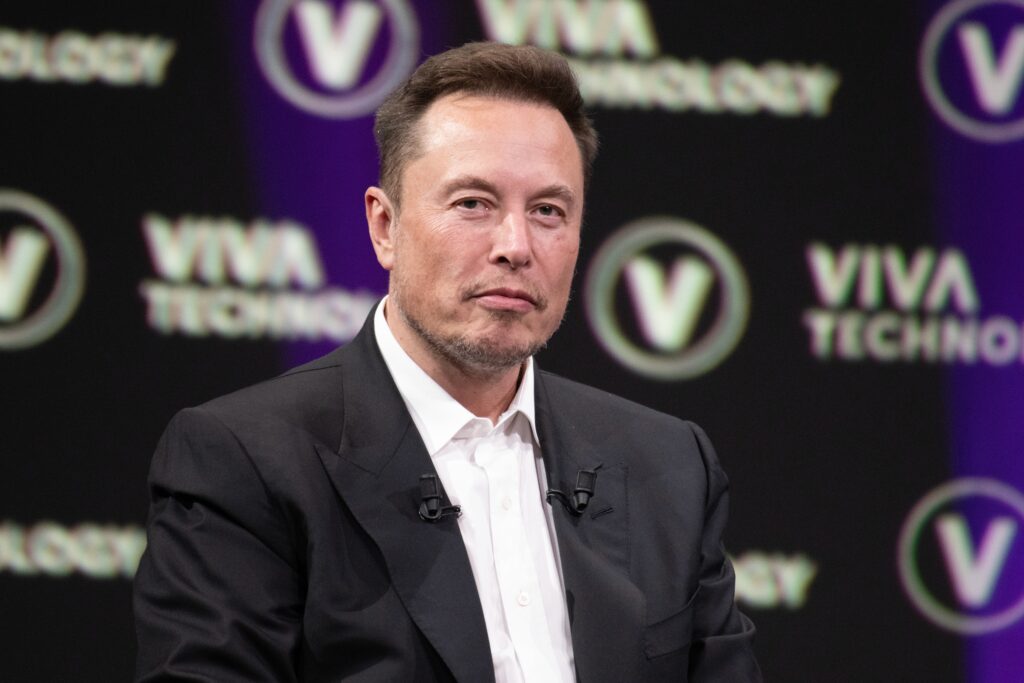A group of investors, led by Elon Musk, has made a massive offer to acquire OpenAI, the company behind the popular artificial intelligence system, ChatGPT. The bid, valued at $97.4 billion, was confirmed by billionaire attorney Marc Toberoff on Monday, who revealed that the offer for all company assets was formally submitted to OpenAI’s board of directors.
Tensions Between Musk and Altman Resurface
This new acquisition attempt marks another chapter in the long-running dispute between Elon Musk and OpenAI CEO Sam Altman. The tension between the two dates back to 2018, when Musk stepped down from OpenAI, the company they co-founded in 2015. OpenAI, which originally began as a non-profit organization, has been transitioning toward a for-profit structure under Altman’s leadership. This shift has further exacerbated the divide, with Musk criticizing the change as a betrayal of OpenAI’s original mission: to develop artificial intelligence for the benefit of humanity.
Altman, on the other hand, defends the restructuring as a necessary move to fund the research and development of increasingly advanced AI models. “The funding we need to drive innovation is simply not available under the old non-profit model,” he has argued. When asked about Musk’s bid, Altman responded with a playful jab on Musk’s social media platform, X (formerly Twitter), stating, “No thank you, but we will buy Twitter for $9.74 billion if you want.”
Musk’s Plan for OpenAI Faces Skepticism
The offer has raised several eyebrows, not just because of the amount involved, but also due to the growing concerns about Musk’s motivations. Alongside xAI, his own AI venture, Musk is backed by a group of private equity firms, including Baron Capital Group and Valor Management. In a statement, Musk emphasized that his aim was to restore OpenAI to its roots as an open-source, safety-driven force for good. “We will ensure that happens,” he declared, adding that his leadership would guide OpenAI toward its original mission.
However, some in the tech community remain skeptical. Christie Pitts, a tech investor with Panasonic Well, voiced doubts over Musk’s true intentions. “It’s reasonable to be skeptical,” Pitts said, noting that Musk’s company, xAI, is a direct competitor to OpenAI and operates on a for-profit basis. With xAI already making waves in the AI space, many wonder whether Musk’s bid is truly in the best interest of OpenAI or if it’s an effort to gain more control over the AI industry, which he has been heavily involved in for years.
Additionally, the offer of $97.4 billion is notably lower than OpenAI’s last valuation in October 2024, which stood at $157 billion. Rumors about an ongoing funding round suggest that OpenAI’s current market value could be closer to $300 billion. Toberoff, representing the consortium of investors, hinted that if necessary, the group could match or even surpass higher bids to secure the acquisition.
Musk’s attorney praised him as “the most innovative and successful tech leader in history,” arguing that Musk is the ideal person to both protect and expand OpenAI’s technology. Critics, however, are questioning whether Musk’s leadership would preserve OpenAI’s founding principles or further commercialize the AI sector in ways that could harm its broader societal impact.
Massive AI Infrastructure Project Announced
Amid these ongoing negotiations, OpenAI is also involved in another major AI initiative. The company has announced its collaboration with Oracle, a major Japanese investment firm, and an Emirati sovereign wealth fund on an ambitious $500 billion project called “The Stargate Project.” This AI infrastructure initiative was unveiled at the White House, with former President Donald Trump attending the announcement. Trump described it as the largest AI infrastructure project ever undertaken, emphasizing its potential to maintain the U.S.’s lead in AI innovation.
Despite Musk’s key advisory role to Trump, he has raised questions about the financial backing behind the Stargate Project. While Musk did not provide specific details or evidence, he suggested that the initiative might struggle to meet its ambitious funding goals. Nevertheless, the project is expected to have significant implications for the future of AI in the U.S., especially as nations around the world compete to develop and deploy cutting-edge artificial intelligence technologies.
Moving Forward: A Competitive Landscape
As OpenAI continues to chart its path forward, the question remains whether Musk’s bid will succeed in reshaping the company. With tensions between Musk and Altman growing, the next few months could be pivotal in determining the future of OpenAI and its role in the rapidly evolving AI landscape. Musk’s proposal has already sparked heated debates over the commercialization of AI and the ethical implications of such vast technological power in the hands of a few corporations.
The outcome of this bid could influence the trajectory of AI research and development for years to come. For now, all eyes are on the next moves from both Musk and Altman, as they navigate their differences and seek to determine the future direction of one of the world’s most influential AI organizations.
For further updates on this developing story, as well as other Business News visit Financial Mirror.
